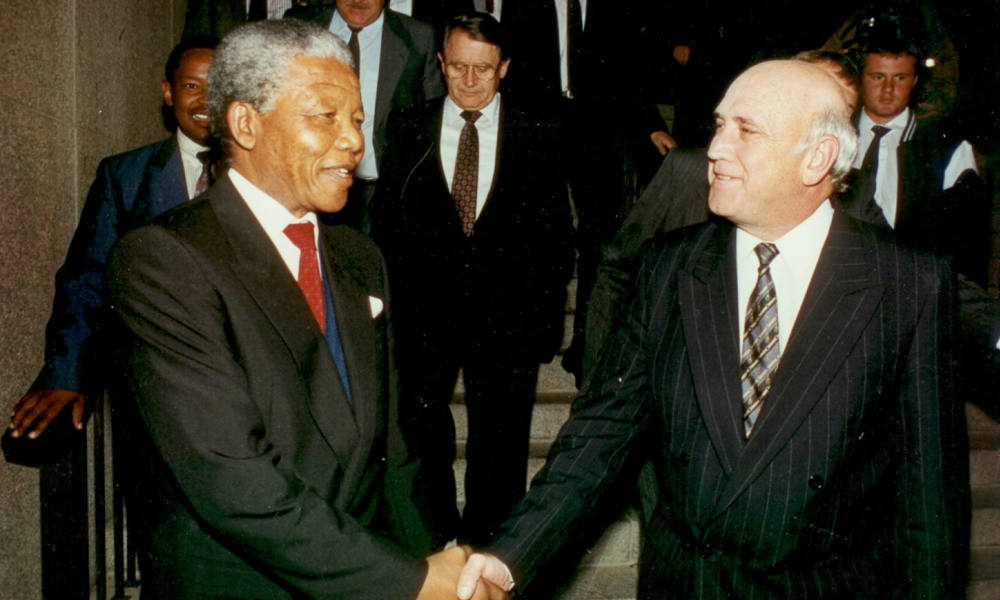Politics
F.W. de Klerk, South Africa’s last apartheid-era leader, dead at 85

Frederik Willem de Klerk, who served as South Africa’s last apartheid-era leader and was awarded the Nobel Peace Prize alongside Nelson Mandela, has died at his home in Cape Town, his spokesman says. He was 85 years old.
“It is with the deepest sadness that the FW de Klerk Foundation must announce that former President FW de Klerk died peacefully at his home in Fresnaye earlier this morning following his struggle against mesothelioma cancer,” the foundation said in a statement.
De Klerk was diagnosed with mesothelioma, a cancer that affects the lining of the lungs, in March and received immunotherapy. He is survived by his wife Elita, his children Susan and Jan, and his grandchildren.
De Klerk served as president in a white minority government from August 1989 until May 1994. He announced sweeping reforms just months later, which included the unbanning of the African National Congress (ANC) and the release of political prisoners, which included Nelson Mandela, who became president just four years later.
Mandela and Frederik Willem de Klerk were jointly awarded the 1993 Nobel Peace Prize for their work to bring the apartheid regime in South Africa to an end, and for laying the foundation of a new democratic South Africa. Mandela died in December 2013.
The Nelson Mandela Foundation said it was saddened by De Klerk’s death, and sent its condolences to Elita and their family. “De Klerk’s legacy is a big one. It is also an uneven one, something South Africans are called to reckon with in this moment,” the foundation said.
Speaking at De Klerk’s 70th birthday celebration, Mandela said: “You and I have had our differences, some of them very public. Our basic respect for one another has, however, never diminished. And it was that respect for the other irrespective of all differences that made it possible for us, and our organisations, to work together and to negotiate that historic compromise that the world marvelled at.”
Mandela added: “If we two old, or ageing, men have any lessons for our country and for the world, it is that solutions to conflicts can only be found if adversaries are fundamentally prepared to accept the integrity of one other.”

-

 Legal5 days ago
Legal5 days agoArkansas Amber Alert: Trixie Studer missing from Logan County
-

 Legal7 days ago
Legal7 days agoColorado Amber Alert: Sandra Mendoza abducted in Pueblo
-

 Legal1 week ago
Legal1 week agoTexas Amber Alert: 3 children missing from Austin
-

 US News1 week ago
US News1 week agoU.S. COVID update (October 14): 70,360 new cases, 1,189 new deaths
-

 Legal2 days ago
Legal2 days ago5 killed in shooting at Fall City, Washington home, teenager arrested
-

 Legal23 hours ago
Legal23 hours agoSuspect arrested in shootings at Democratic Party campaign office in Arizona
-

 Entertainment2 days ago
Entertainment2 days agoFormer ‘Iron Maiden’ singer Paul Di’Anno dead at 66
-

 Entertainment7 days ago
Entertainment7 days agoFormer ‘One Direction’ star Liam Payne dead at 31

